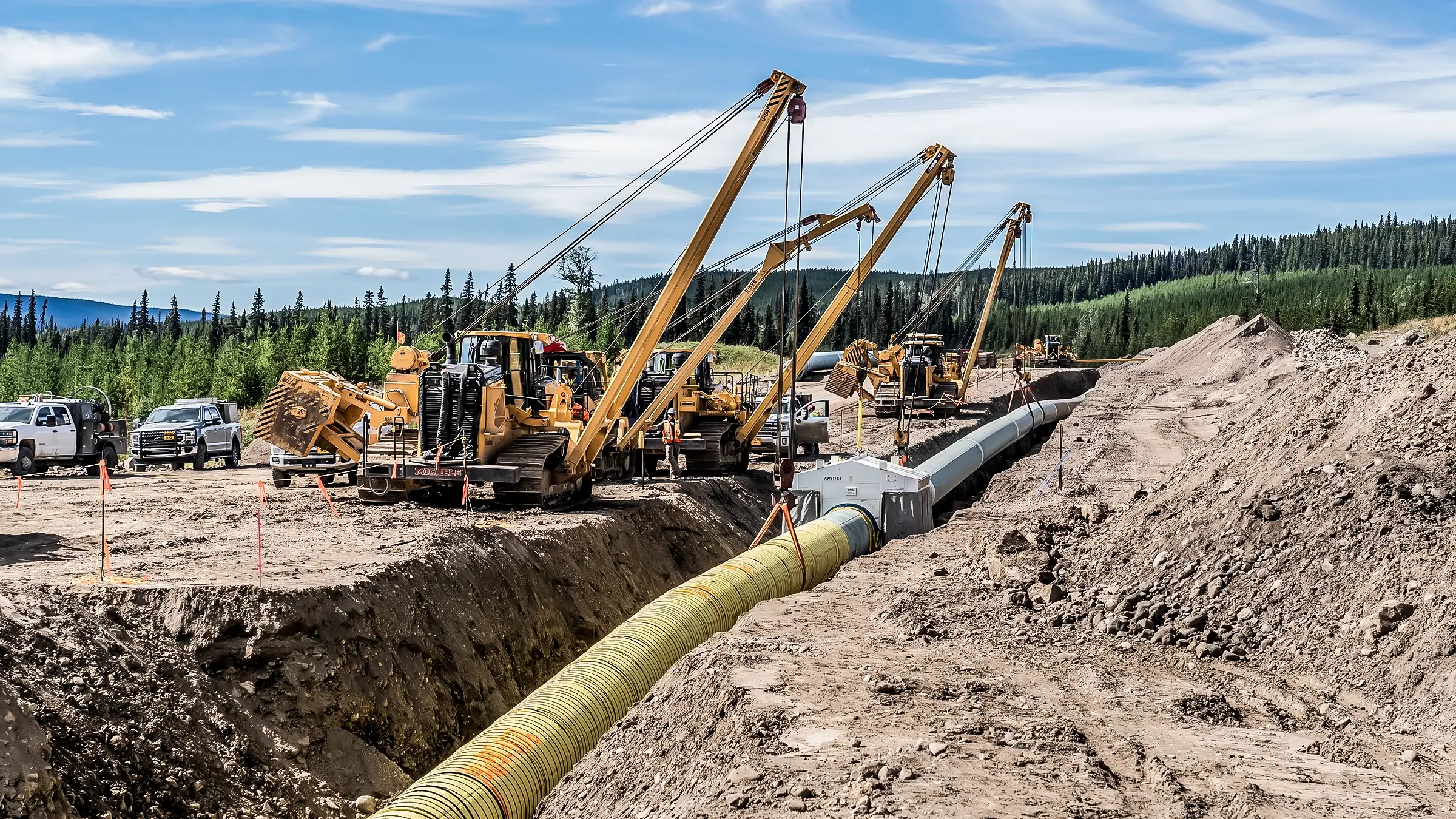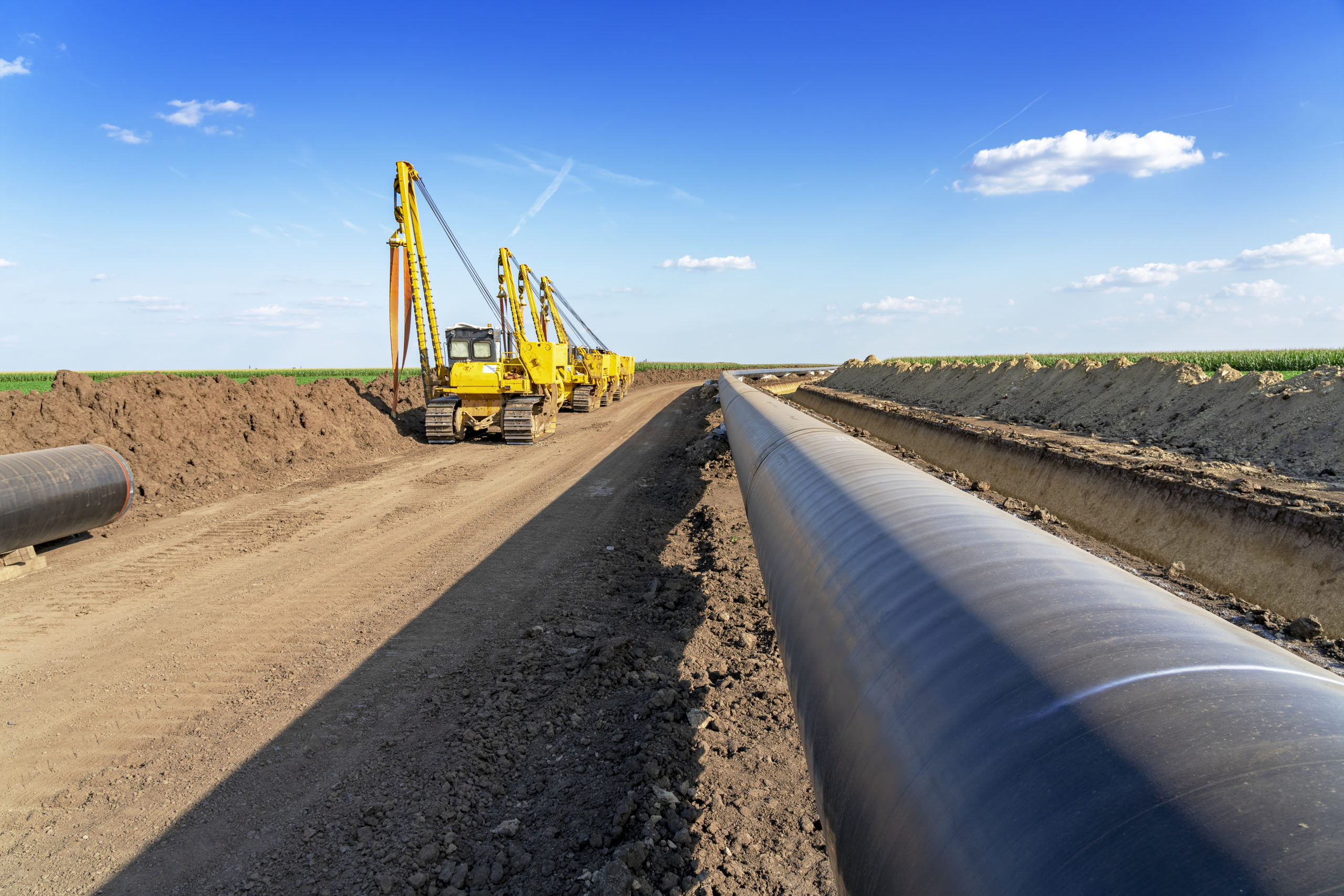The Role of Creek Pipe Midland in Next-Gen Pipeline Monitoring Systems
Wiki Article
A Comprehensive Guide to Comprehending Pipelines and Their Role in Building and construction
Pipelines are vital elements in building, serving important functions in waste, gas, and water management. Their option and application can substantially influence a structure's effectiveness and safety and security. Different products, such as PVC, copper, and PEX, use distinctive advantages fit to specific requirements (Creek Pipe Company LLC). Recognizing these variables is crucial for any construction job. As one discovers the intricacies of pipelines, the implications for conformity and public health ended up being significantly noticeableThe Importance of Pipeline in Building and construction
Pipes act as important avenues in construction, assisting in the activity of water, gas, and waste throughout structures and framework. Their function expands past plain transportation; they are important for guaranteeing the functionality and safety of household and business atmospheres. Appropriately set up pipes add to the effective distribution of sources, allowing daily tasks such as cooking, heating, and showering. Moreover, pipelines play an essential function in waste management, guaranteeing that sewage and wastewater are successfully gotten rid of from living spaces.The relevance of pipes is likewise mirrored in their effect on public wellness. Malfunctioning or insufficient piping systems can lead to contamination and dangerous problems, making high quality products and setup methods crucial. Furthermore, pipelines must adhere to numerous building regulations and regulations, which are developed to shield both residents and the environment. As a result, the importance of pipelines in building and construction incorporates both useful functionality and essential health and wellness factors to consider.Kinds Of Pipeline Utilized in Building Tasks
Numerous types of pipes play a significant function in structure jobs, each created to meet details needs and applications. Amongst one of the most commonly made use of pipeline types are PVC, which is resistant and lightweight to corrosion, making it suitable for drainage and vent systems. CPVC pipelines, comparable to PVC, can endure greater temperatures, usually made use of in hot water systems. Copper pipes are recognized for their longevity and integrity, often employed in plumbing and heating applications. Galvanized steel pipelines, while less common today, were once a requirement for water system lines due to their strength. Furthermore, PEX (cross-linked polyethylene) pipelines are gaining popularity for residential plumbing due to their adaptability and resistance to scaling and chlorine. Ultimately, cast iron pipes are preferred for their sound-dampening buildings, generally used in waste and soil systems. Each pipeline type serves distinct features, making certain reliable procedure in construction tasks.Typical Materials for Piping and Their Properties
In construction, the option of pipeline materials is critical for making certain durability and capability. Steel pipelines offer stamina and resistance to high pressures, while plastic pipes give light-weight and corrosion-resistant choices. Composite pipes combine the advantages of both products, making them functional choices for different applications.Metal Pipe Options
Metal pipes are essential parts in construction, providing a range of choices that accommodate different applications and environmental problems. One of the most usual materials consist of steel, copper, and cast iron. Steel pipes are understood for their strength and resilience, making them appropriate for high-pressure applications. Copper pipelines are favored for their deterioration resistance and antimicrobial properties, usually utilized in pipes systems. Cast iron pipelines offer exceptional audio insulation and are suitable for waste and drain systems. Each steel type has distinctive advantages; for example, galvanized steel can withstand rust, while stainless-steel provides exceptional corrosion resistance. Choosing the ideal steel pipe relies on aspects such as price, environmental direct exposure, and the details requirements of the building and construction project.
Plastic Pipe Advantages
Plastic pipelines have obtained appeal in building and construction because of their lightweight nature and versatility. These pipes, made from products such as PVC, CPVC, and PE, offer exceptional resistance to corrosion and chemical damages, making them ideal for numerous applications. Their simplicity of installation additional boosts their appeal, as they can be reduced and joined without unique tools. In addition, plastic pipelines are usually extra economical compared to metal alternatives, contributing to reduced general project expenditures. Their smooth interior surfaces decrease rubbing and enhance circulation rates, while insulation buildings aid keep temperature control in pipes systems - Creek Pipe Midland. With a wide variety of sizes and setups available, plastic pipelines effectively fulfill the diverse demands of contemporary construction projectsCompound Pipeline Characteristics
Composite pipes combine various products to leverage their private strengths, leading to enhanced efficiency and sturdiness. Typically, these pipelines are composed of layers that might consist of plastics, ceramics, and steels, each adding unique properties. The inner layer might be made of a corrosion-resistant material, while the external layer gives strength and influence resistance. This mix allows composite pipes to endure extreme temperature levels and stress, making them ideal for a wide variety of applications, consisting of supply of water and industrial processes. Additionally, composite pipes are frequently lighter than standard products, assisting in much easier handling and setup. Their flexibility and flexibility to various atmospheres make them a favored choice in contemporary construction tasks, making sure longevity and performance in fluid transportation systems.Applications of Water Lines in Pipes Systems

Electric Channels: The Role of Pipeline in Electrical wiring
In modern construction, electrical avenues play an important role in making certain the safe and effective transmitting of electrical wiring throughout structures. These pipelines provide a safety path for electric cables, guarding them from physical damage and ecological aspects. Different materials, such as PVC, steel, and adaptable conduits, are used depending upon the details demands of the installation.Furthermore, channels help in organizing wiring systems, lowering the threat of electrical dangers like brief circuits or fires. They likewise promote much easier maintenance and upgrades, as wires can be accessed and replaced without significant disturbance to the structure.Proper installment of electric channels is essential for conformity with building ordinance and safety and security guidelines. This structured method not just enhances the long life of check my source the electric system but also adds to the overall security and capability of the building, making electrical avenues essential in contemporary building and construction techniques.Choosing the Right Pipe for Your Project
How can one guarantee the best pipeline selection for a construction project? The option process starts with understanding the specific demands of the task, including the kind of liquids being moved, pressure rankings, and environmental conditions. Material choices, such as Copper, pvc, and steel, must be evaluated based on durability, corrosion resistance, and thermal properties.Next, one need to consider the pipeline's diameter and circulation ability to ascertain efficient procedure. Regulative criteria and codes must additionally be adhered to, as they determine the acceptable materials and methods for specific applications. Consulting with experts and utilizing extensive sources can even more help in making informed decisions.Finally, reviewing the cost-effectiveness of numerous options is essential, balancing initial expenditures with long-term maintenance and substitute costs - Creek Pipe Midland. By meticulously analyzing these aspects, one can with confidence pick one of the most suitable pipeline for their building project, assuring both performance and conformity
Upkeep and Evaluation of Piping in Building
Appropriate selection of pipes sets the structure for their long-lasting efficiency, making upkeep and evaluation critical components in building. Regular maintenance assurances that any potential issues, such as leakages, corrosion, or obstructions, are determined and addressed promptly, reducing costly repair services and project delays. Arranged assessments, including visual evaluations and stress examinations, play a vital function in reviewing the integrity of pipe systems.Additionally, keeping track of environmental aspects, such as temperature fluctuations and dirt conditions, can help anticipate damage. Using sophisticated modern technologies, such as CCTV for indoor assessments, can improve the effectiveness of upkeep efforts. It is critical to document inspection searchings for and upkeep tasks to develop a thorough history of the pipe systems. By focusing on maintenance and examination, construction experts can extend the life-span of their piping systems, guaranteeing they run effectively and reliably throughout the task's period.Regularly Asked Inquiries
Exactly How Do Pipes Impact Energy Performance in Buildings?
Pipelines significantly influence power effectiveness in buildings by controling heating and cooling systems. Appropriate insulation and products reduce energy loss, while reliable plumbing designs reduce water use, eventually bring Creek Pipe Company LLC about reduced power usage and functional expenses.What Laws Govern Pipe Installation in Building?
Rules regulating pipe setup in building usually include neighborhood and national building ordinance, pipes codes, and safety and security requirements. These assurance compliance with architectural honesty, material requirements, and health and wellness demands, advertising security and effectiveness in construction techniques.Can Water Lines Be Recycled After Use?
The question of pipeline recyclability is considerable. Lots of materials, such as steel and certain plastics, can be reused successfully. However, the condition and kind of pipeline impact recycling usefulness, necessitating proper assessment before disposal.
Just How Do Climate Condition Influence Pipe Performance?
Climate condition significantly affect pipeline efficiency. Severe temperatures can cause growth or contraction, while moisture might cause corrosion. Additionally, hefty precipitation can boost dirt pressure, affecting security and general functionality of the piping system.What Are the Indicators of Pipe Failing to Expect?
Indicators of pipe failing include leakages, unusual noises, staining of water, reduced water stress, and visible deterioration. Normal inspections can assist identify these problems early, protecting against expensive repairs and guaranteeing system capability in the lengthy term. Pipes play a pivotal duty in waste administration, making sure that sewer and wastewater are successfully eliminated from living spaces.The importance of pipelines is likewise mirrored in their impact on public health. In building and construction, the choice of pipeline materials is essential for making certain toughness and performance. Metal pipes use toughness and resistance to high stress, while plastic pipelines supply lightweight and corrosion-resistant choices. In addition, pipes are used to eliminate wastewater, attaching bathrooms, sinks, and drains to metropolitan sewage systems or septic tanks.Different kinds of pipelines, such as PVC, copper, and PEX, are picked based on variables like longevity, expense, and certain application requirements. Exactly how can one ensure the right pipe choice for a building and construction job?Report this wiki page